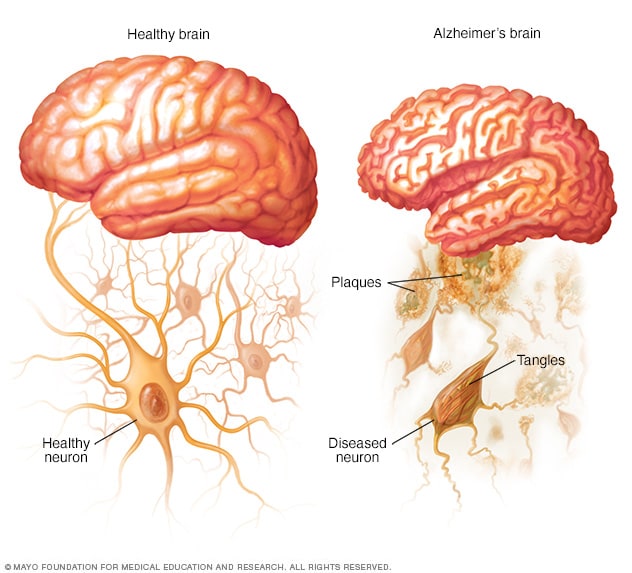In a world where uncertainty lingers like a shadow, the prospect of facing one’s own mortality can be a daunting reality. For those who carry the weight of a genetic predisposition towards Alzheimer’s disease, such uncertainty can be particularly unsettling. Meet individuals like Jane, who at the age of 50, grapples with the unsettling statistic that she has a fifty-fifty chance of developing Alzheimer’s in her 50s. Join us as we delve into the complexities of living with the looming presence of a disease that threatens to alter the course of one’s future.
Understanding the Genetic Risk of Early Onset Alzheimer’s
Many people may not realize that early-onset Alzheimer’s disease can be linked to genetics, meaning that it can run in families. For some individuals, like Sam, this genetic risk can be a daunting reality. With a 50:50 chance of developing Alzheimer’s in his 50s, Sam is faced with the uncertainty of his future and the impact it may have on his loved ones.
Understanding the genetic risk of early-onset Alzheimer’s is crucial for individuals like Sam and their families. By being aware of this risk, individuals can make informed decisions about their health and seek out early intervention and support. While genetics may play a role in the development of Alzheimer’s, it’s important to remember that lifestyle factors and other environmental influences can also contribute to the disease. With ongoing research and advancements in genetic testing, individuals like Sam can take proactive steps towards understanding and managing their risk of early-onset Alzheimer’s.
Exploring the Impact of Lifestyle Choices on Alzheimer’s Risk
As we age, the risk of developing Alzheimer’s disease becomes a growing concern for many individuals. It’s a daunting thought to consider that lifestyle choices could potentially influence the likelihood of developing this debilitating condition. One individual shared their personal revelation, stating, “I have a 50:50 chance of developing Alzheimer’s in my 50s.” This statement serves as a stark reminder of the importance of understanding the impact of lifestyle choices on Alzheimer’s risk.
**Factors that may influence Alzheimer’s risk include:**
– **Diet:** Consuming a balanced diet rich in fruits, vegetables, and healthy fats can support brain health.
– **Physical Activity:** Regular exercise has been linked to a reduced risk of developing Alzheimer’s disease.
– **Mental Stimulation:** Engaging in activities that challenge and stimulate the brain may help maintain cognitive function.
– **Sleep:** Prioritizing quality sleep is crucial for overall brain health and may reduce the risk of cognitive decline.

Recommendations for Early Detection and Prevention of Alzheimer’s in Middle Age
As we reach middle age, the looming thought of developing Alzheimer’s can be a daunting reality. However, there are proactive steps we can take to potentially delay or prevent the onset of this debilitating disease.
- Maintain a healthy lifestyle: Regular exercise, a balanced diet, and adequate sleep can help reduce the risk of developing Alzheimer’s.
- Stay mentally active: Engaging in activities that challenge your brain, such as puzzles, reading, or learning a new skill, can help keep your mind sharp.
- Socialize: Connecting with others and maintaining strong social relationships can help prevent cognitive decline.
| Recommendation | Benefits |
|---|---|
| Regular exercise | Improves overall health and cognitive function |
| Mental stimulation | Strengthens neural connections and reduces risk of dementia |
| Healthy diet | Provides essential nutrients for brain health |
By incorporating these recommendations into your daily routine, you can take control of your brain health and potentially reduce the risk of developing Alzheimer’s as you age. Remember, early detection and prevention are key in the fight against this devastating disease.
To Conclude
As we delve into the reality of living with the specter of Alzheimer’s looming over us, it’s important to remember that knowledge is power. By educating ourselves and staying informed, we can take proactive steps to potentially delay or prevent the onset of this debilitating disease. Remember, you are not alone in this journey and there are resources and support systems available to help you navigate the uncertainties that lie ahead. Stay strong, stay informed, and remember that hope is always on the horizon.



